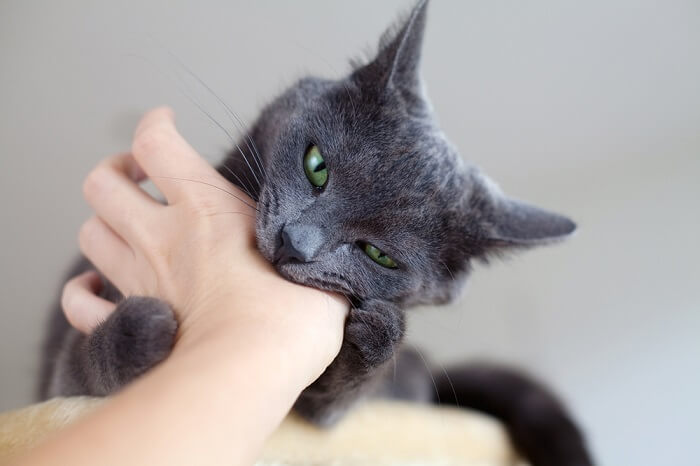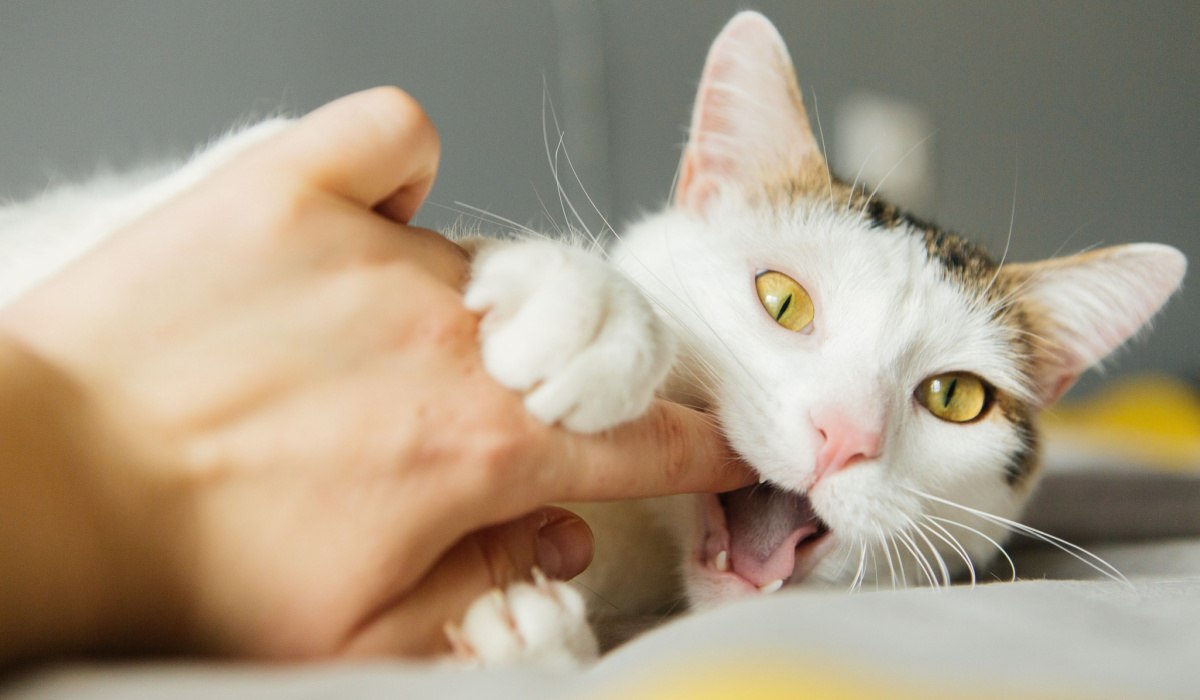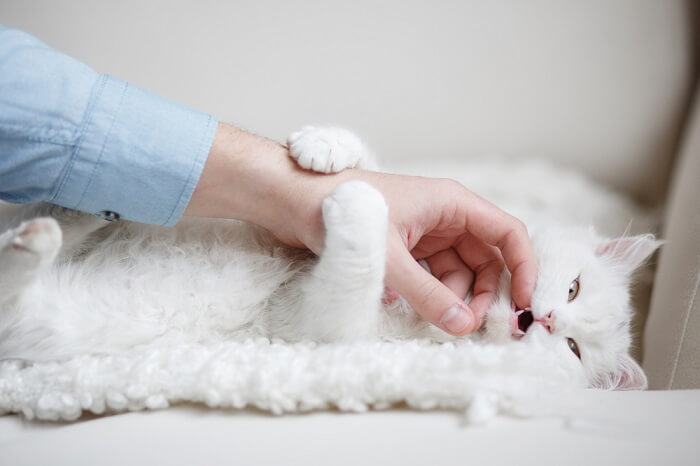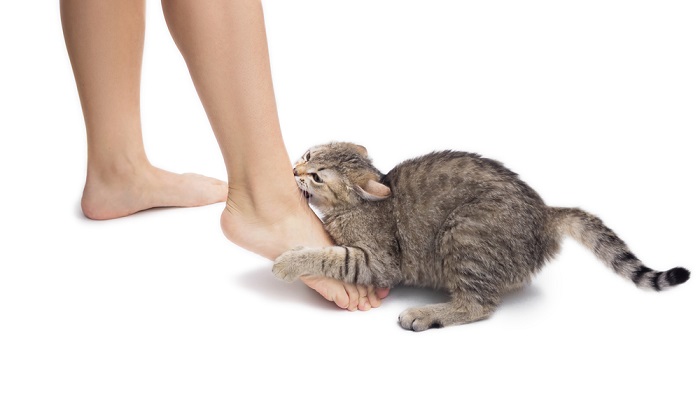You’re gently petting your cat when she begins nipping at your hand, which leaves many cat owners wondering, “Why is my cat biting me?” These so-called “cat love bites” don’t typically draw blood, but they happen suddenly, which leaves you wondering what caused the change in your cat’s behavior.
“Biting owners during petting is one of the most common behavioral problems of cats,” says Dr. Kelly Ballantyne, a board-certified veterinary behaviorist at the College of Veterinary Medicine at the University of Illinois, Chicago.
Veterinarians weigh in on what cat love bites are, why cats engage in this behavior, and how pet parents can react appropriately when their furred family member feels the need to bite.
What Cat Love Bites Are and Aren’t
Don’t confuse cat love bites—also referred to as petting-induced aggression—with the type of overly-aggressive biting associated with fear, defensiveness or acting territorially.
Cat love bites don’t typically break skin. “It starts off with licking, and the grooming behavior becomes more intense, and you may feel little teeth on you,” explains Dr. Wailani Sung, a staff veterinarian with San Francisco SPCA.
Another clue that your cat is engaging in love biting is that other signs of aggression, such as hissing, growling and clawing, are typically absent, says Dr. Liz Stelow, Chief of Service of Clinical Behavior Service at the Veterinary Medical Teaching Hospital at University of California, Davis.
“The cat's body language is usually fairly relaxed, although the cat may become slightly tense immediately prior to biting,” Dr. Stelow says.
Why Your Cat Bites You During Petting Sessions
There isn’t much research on why cats engage in love biting; most of what’s known is based on speculation, says Dr. Stelow.
The term “love bite” is somewhat of a misnomer. “When cats bite in this context, it’s not a sign of affection, but rather a signal that the cat is done with the interaction. If the petting continues despite the cat’s efforts to signal that he or she is done with being petted, the cat may escalate to a bite,” says Dr. Ballantyne. A cat love bite can certainly be a result of overstimulation.
Cat love bites can also be unintentional, as part of the cat’s grooming process. They could be “licking for a certain period of time, then using their incisors to get a particular area. Your cat may choose to groom you, your hand or face or head,” says Dr. Sung.
Additionally, not all cats enjoy petting. “Some cats may want to, or enjoy resting on their pet parent’s lap, but may not really enjoy being petted. It’s also possible that the pet parent is petting the cat in areas that the cat finds unpleasant, such as on its belly or near or on its tail,” says Dr. Ballantyne.
How to Appropriately Respond to Cat Love Bites
Studying your cat’s body language is one of the best ways to learn how to appropriately react and prevent future occurrences. “Watch for signs of discomfort, such as ears to the side or a twitching tail, and stop petting if these are seen,” says Dr. Ballantyne.
Pet parents should notice if the cat biting stops when the cat is being petted with more frequency, or less, says Dr. Terri Bright, Director of Behavior Services at MSPCA-Angell in Boston. “The owner should then respond appropriately before the cat bites. Thus, if the cat typically bites after five petting strokes, the owner should always stop at four strokes. They can even teach the cat that ‘All done!’ means they will get a favorite toy for the cat.”
Dr. Ballantyne recommends keeping petting sessions brief, pausing frequently to gauge the cat’s interest. “I also recommend that people always invite their cat over to interact, rather than approaching and handling a sleeping or resting cat. And focus petting on areas that cats generally enjoy, such as around the ears and under the chin, and avoid petting cats on their bellies or near their tails.”
Never react negatively to cat biting. “The owner should never scruff, shake, spray or frighten the cat in any way; this can cause the cat to respond with true and dangerous aggression,” says Dr. Bright.
If a cat bites you and breaks the skin, be sure to wash the wound immediately. Look for any swelling, pain or redness that spreads. If you see any of these, see your doctor or go to a walk-in clinic.
Love biting is a common behavior in cats, but one that can be managed by studying your cat’s body language, learning to redirect undesired behaviors and respecting her tolerance for contact.




